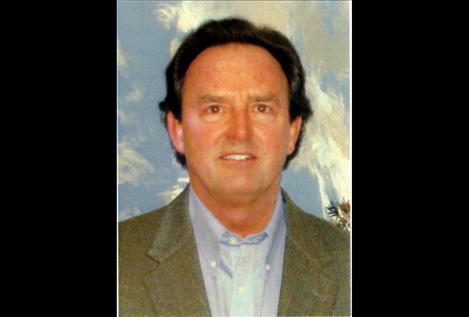Local lawyer hopes to unseat district judge
Hey savvy news reader! Thanks for choosing local.
You are now reading
2 of 3 free articles.
The District Court judge seat in District 20 is up for grabs in the Mission Valley, and two local residents are competing for the job.
Montana currently sustains 56 District Courts in 22 judicial districts. District Court judges serve six-year terms. During these terms, they hear cases including all felony and probate cases, civil suit cases and, sometimes, appeal cases from lesser courts with limited jurisdiction. District 20 includes Lake County and Sanders County.
Incumbent Deborah “Kim” Christopher said she is running against challenger Thomas A. Kragh, “Because this is home. This is where I’m from, these are the people I grew up with and this is where I raise my family. It’s an incredible privilege to live in a place I care about and serve these people.”
Kragh said while he is running for the same seat as Christopher, he isn’t running out of a “desire to put on a black robe and wield a gavel. I just looked at my background, my education, my practical experience practicing law, and I said, ‘I think I’d like to take on in the later part of my career the challenge of being a judge.’”
When asked what the primary difference between them and their opponent would be, both candidates pointed toward their experience.
“My record, my prior service, my veteran status, my knowledge of the area having grown up here and my reputation of myself and my folks as people who care about this area and return to serve here because it’s home,” Christopher said.
Beyond this, she said the predominant difference between her and Kragh was her experience in the judge’s chair.
“Twelve years on the bench makes a significant difference,” Christopher said. “It’s strictly on-the-job training, and it took me at least three years before I really felt comfortable that I knew what I was doing.”
Christopher said she “lives to (be a judge)” because it was so different than the attorney-client relationship.
“When I was an attorney representing a client, I would hear a case from the beginning, take it all the way through the system so you knew everything about the case, who I was advocating for and how I was going to do it. When you’re a judge, all you get is a slice. You get the facts and you get the law, but you don’t get to care about what happened after or what happened before,” she said.
Kragh had a very different view. While he said that he had been an elected prosecutor and a criminal defense lawyer, the majority of his practice has been self-employed as a private attorney.
“I did that for a reason. I decided that I wanted to go into private practice and make it on my own,”
Kragh said. “I think that’s one of the things that separates us. I have a much broader view of the nuts and bolts of practicing law.”
When asked how the knowledge of the nuts and bolts of practicing law would aid him in a judge’s position, he said he would “bring it to the bench.”
“I think what it does is it gives me a much better feel for the type of cases you get, the type of people that come into the courtroom, and what the lawyers are dealing with. I’ve been there, I’ve had those experiences firsthand with my own clients,” he said.

















